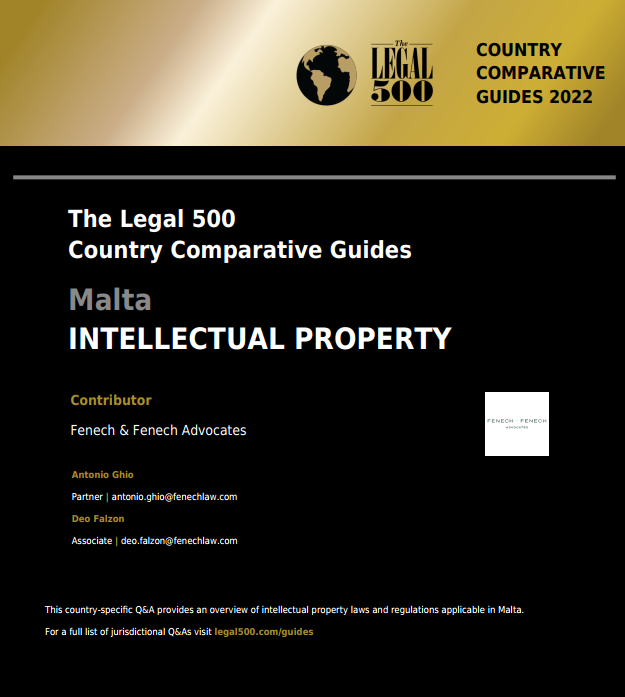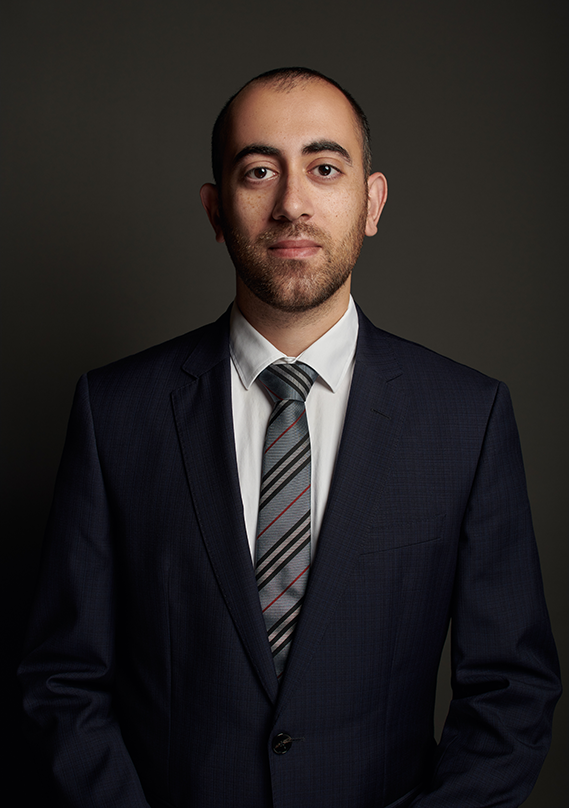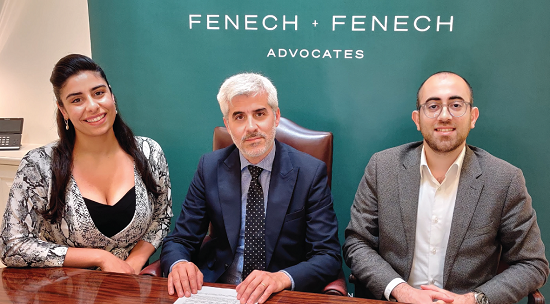Fenech & Fenech Advocates has capitalised on intellectual property as a growing industry in Malta with a dedicated IP team, assisting clients from all industry sectors on non-contentious and contentious matters. The firm’s Intellectual Property practice offers consultation, advice and guidance through all aspects of IP strategy, protection, exploitation and enforcement of IP rights, assisting clients in all related areas including trademarks, copyright, patents, design rights, and databases as well as soft IP areas including unfair competition and trade secrets.
The department provides a complete, comprehensive and efficient service to help clients protect a wide variety of creations ranging from from traditional intellectual property matters to emerging information technology.
KEY CONTACTS
FAQS
What different types of intellectual property rights exist to protect: (a) Inventions (e.g. patents, supplementary protection certificates, rights in trade secrets, confidential information and/or know-how); (b) Brands (e.g. trade marks, cause of action in passing off, rights to prevent unfair competition, association marks, certification marks, hallmarks, designations of origin, geographical indications, traditional speciality guarantees); (c) Other creations, technology and proprietary interests (e.g. copyright, design rights, semiconductor topography rights, plant varieties, database rights, rights in trade secrets, confidential information and/or know-how).
Inventions (e.g. patents, supplementary protection certificates, rights in trade secrets, confidential information and/or know-how); Patents Inventions satisfying patentability requirements in Malta can obtain patent registration protection by virtue of Chapter 417 of the Laws of Malta, the Patents & Designs Act. Malta is also party to the European Patent Convention and the PCT, Patent Cooperation Treaty. SPC, Supplementary Protection Certificates can also be obtained in Malta solely in relation to medicinal and plant products. SPCs extend the ultimate term of a patent to compensate for the time spent in obtaining regulatory clearance for a patent.Trade Secrets There are also measures protecting confidential information through tort law and trade secrets. Malta has also transposed the Trade Secrets Directive into Maltese law. Brands (e.g. trade marks, cause of action in passing off, rights to prevent unfair competition, association marks, certification marks, hallmarks, designations of origin, geographical indications, traditional speciality guarantees); Trademarks The registration of Trademarks has long been catered for under Maltese law. Chapter 596 of the laws of Malta, the Trademarks Act (2019) transposed the mandatory provisions of the EU’s Trademark Directive 2015/2436 (TMD). The EUTM Regulation 2017/1001 is also directly applicable in Malta and therefore a registered EUTM is also recognised in Malta as an earlier right by virtue of the Trademarks Act. Trademarks under both National Legislation and EU regulations may be collective or certificate marks.Geographical indications, designations of origin and denominations of origin can also obtain protection under separate legislation (not the Trademarks legislation) and strictly speaking are not defined as IPRs.Unfair Competition Maltese law also provides protection from passing of for unregistered marks, names and distinctive devices from similar marks capable of causing confusion under the provisions relating to unfair competition under Chapter 13 of the laws of Malta, the Commercial Code. Other creations, technology and proprietary interests (e.g. copyright, design rights, semiconductor topography rights, plant varieties, database rights, rights in trade secrets, confidential information and/or know-how). Copyright Author’s moral and economic rights are protected by virtue of Chapter 415 of the laws of Malta, the Copyright Act. The act caters for literary works (including computer programs) as well as artistic works, audiovisual works, musical works and databases. The sui generis database right provided by the Database directive is also transposed in the same act. The act also provides for the sui generis right of semi conductor product topographies.Malta is also party to the Berne Convention, the Universal Copyright Conventions, the TRIPS agreement and the WIPO Copyright Treaties (the WPPT and the WCT).Other creations, technology and proprietary interests (e.g. copyright, design rights, semiconductor topography rights, plant varieties, database rights, rights in trade secrets, confidential information and/or know-how).DesignsRegistered design protection can be obtained by virtue of a national design registered in terms of Chapter 417 of the laws of Malta, the Patents and Designs Act or a community design registered by virtue of the Community Design Regulation 6/2002. The latter also caters for the EU unregistered design right which is also applicable in Malta. Plant variety rights are granted in Malta by virtue of the European procedure in this regard. Plant variety rights are not categorised by Maltese law as intellectual property rights at present, and they do not fall within the remit of the Industrial Property Registrations Directorate (IPRD). They are, nevertheless, given a form of recognition and protection. Trade Secrets Official protection for Trade Secrets was introduced in Malta following an EU wide harmonisation measure in the form of Directive 2016/943/EU on the protection of undisclosed know-how and business information (trade secrets) against their unlawful acquisition, use and disclosure. The Trade Secrets Act, which came into force in May 2019 seeks to protect information which fulfils a list of requirements relating to the requirement of secrecy, commercial value, and a series of reasonable steps undertaken to ensure the secrecy of such information.
What is the duration of each of these intellectual property rights? What procedures exist to extend the life of registered rights in appropriate circumstances?
Trademarks: A Malta registered trademark is valid for a period of ten years and can be renewed indefinitely for periods of ten years at a time. Unfair competition: The rights granted to prevent passing off through unfair competition do not have a particular set duration at law and the subsistence of the right or otherwise has to be determined on a case by case basis. Copyright: The date of expiration of copyright for literary, musical or artistic works and a database is seventy years after the end of the year in which the author dies, irrespective of the date when the work is lawfully made available to the public. With regard to audiovisual works, copyright expires seventy years after the end of the year in which the last of the following person dies: the principal director, the author of the screenplay, the author of the dialogue and the composer of music specifically created for use in the audiovisual work. Neighbouring rights: Have a duration of seventy years from the end of the year in which the fixation of the work was first lawfully published or first lawfully communicated to the public, whichever is the earlier, in accordance with the Term Directive. Designs: Registered design rights last for a period of five years from the date of filing of the application. The right holder may have the term of protection renewed for one or more periods of five years each, up to a total term of twenty-five years form the date of filing. The Unregistered Design Right will last, according to EU law, for a period of 3 years. Patents: The term of a patent lasts 20 years from the filing date of the application. It is also possible to apply for a Supplementary Protection Certificate (SPC) which has the effect of extending the term of a patent. The duration of an SPC commences at the expiry of the term of the patent and continues to have effect for that period equal to the period elapsed between the first day of the sixth year following the date of the application for a patent and the date of the first authorisation to place the product on the market in Malta or in any other country with which the Government of Malta has reciprocal or international agreements on supplementary protection certificates. However, the period lapsed as aforesaid shall in no case exceed five years. For the purposes of calculating the duration of the SPC, account shall be taken of a provisional first marketing authorisation only if it is directly followed by a definitive authorisation concerning the same product. Trade Secrets have no expiry as such, as long as the applicable requirements subsist. Under the appropriate conditions trade secrets can be maintained for an unlimited period of time. Renewal of registration With regard to each registrable intellectual property right (IPR), different renewal procedures exist for each IPR. These are fairly standard, in that, a renewal application must be filled in and filed, whether manually or online. Renewal fees, or in the case of patents maintenance fees, must be paid accordingly. A renewal notification is usually sent to the IPR owner by the Maltese IPRD.
Who is the first owner of each of these intellectual property rights and is this different for rights created in the course of employment or under a commission?
Trademarks: The owner of a trademark is the person who registers the mark in their name. Unfair Competition: The holder of the rights granted by virtue of the provisions preventing the subsistence of unfair competition would depend on the reputation associated with such a holder and again this would depend on an analysis carried out on a case by case basis. Copyright: Under the Copyright Act, the first owner of copyright is the author or the joint authors, as the case may be. With regard to computer programs and databases which are made in the course of the author’s employment, in the execution of one’s duties or following the instructions given by the employer, the economic rights conferred by copyright are transferred ex lege to the employer, subject to any agreement between the parties excluding or limiting such transfer. In respect of other works eligible for copyright created pursuant to a contract of service or employment, in the absence of an agreement to the contrary between the parties, the copyright shall always initially vest in the author or joint authors. When semiconductor product topographies are created in the course of employment, in the execution of one’s duties or following the instructions given by the employer, the rights conferred upon such semiconductor product topographies are transferred to the creators’ employer, subject to any agreement between the parties limiting or excluding same. Designs: A registered design is a property right obtained by the registration of the design conferring on to the proprietor of a registered design the rights and remedies provided by Maltese law. Patents: The right to a patent shall belong to the inventor or his successor in title. Joint inventors shall, unless they agree otherwise, have equal rights and where the application for a patent is made by two or more persons jointly, a patent may be granted to them jointly. With regard to patents created in the execution of a commission or a contract employment, the Maltese Patents and Designs Act provides that the right to a patent for that invention shall belong, in the absence of contractual provisions to the contrary, to the person having commissioned the work or to the employer. Trade Secrets: The law refers to a “trade secret holder” which is defined as any natural or legal person lawfully controlling a trade secret. This is to be read in conjunction with other articles which define unlawful acquisition of a trade secret in order to correctly determine whether a particular trade secret holder can qualify for the definition which is set by law.
Which of the intellectual property rights described above are registered rights?
Trademarks, patents, (registered) design rights, supplementary protection certificates are registrable. Copyright, trade secrets and the unregistered design right are unregistered rights. Geographical indications and designations of origin also have their own registration processes – however Maltese law does not categorise them as intellectual property rights at present, and they do not fall within the remit of the IPRD. The same can be said about plant variety rights.
Who can apply for registration of these intellectual property rights and, briefly, what is the procedure for registration?
Any person (individual or legal person) can apply for the registration of the IPRs mentioned in question 4 above. The procedure for registration will always involve the filling of an application which must be in line with the basic legal requirements and accompanied with the payment of the prescribed fee. Trademark and design right applications must include the relevant classifications for the goods and services covered. Since Malta is a member of the Paris Convention, priority filings may be made or claimed in Malta – until date of writing, there are no additional costs related to the claiming of priority when filing applications. With regard to trademarks, the IPRD has now moved away from an examination based on relative grounds and only conducts an examination on absolute grounds. A period reserved for oppositions to registration has also been introduced which has to be exhausted before the registration of a trademark is completed. In the case of patent applications, the IPRD does not carry out a substantial examination of the application. Applications for registration of an IPR may be filed in paper format or online, with more and more applications being filed online. Different application fees, depending on the relevant IPR being filed, are due accordingly.
How long does the registration procedure usually take?
The registration process varies according to the type of IPR being filed. The trademark office has transitioned from conducting both a relative and absolute grounds examination to an examination based solely on absolute grounds. It is therefore expected that the previous 4-6-month time frame for registrations will be reduced somewhat although one is to consider that following publication of an application, 60 working days are reserved for the opposition period, upon the lapse of which a trademark may proceed to registration. With patent applications, as long as all required documents are filed, the process will last eighteen (18) months. Design right applications have recently sped up and the process lasts between 1-3 months.
Do third parties have the right to take part in or comment on the registration process?
With respect to trademarks, an opposition procedure has been introduced which subsists for 60 working days from the publication of a trademark application. Following registration, parties may also seek invalidations on the grounds provided at law.
What (if any) steps can the applicant take if registration is refused?
Applicants will have the right to appeal the decision refusing registration. Appeals will have a suspensive effect on the application.
MORE DETAILED INFORMATION
Malta: Intellectual Property
This country-specific Q&A provides an overview of intellectual property laws and regulations applicable in Malta.
DOWNLOAD BROCHURE

GET YOUR FREE BROCHURE








